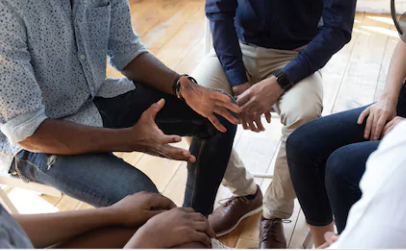In general, western culture has not provided optimal learning for dealing with conflict openly and directly. Many people think it is normal and acceptable to take the easy way out: talking behind people’s backs and getting an authority involved without first checking our assumptions. Group members may need a lot of encouragement to do things differently, and especially they need to see leaders or core team members demonstrate this behavior. This motivates members to try out an unfamiliar process when it comes time for conflict management in intentional communities.

Conflict Management
For some, it might seem intuitive and easy to manage differences and conflict. For others, whose primary subculture dealt with conflict by sweeping it under the rug or letting it build up until it exploded, they may not have practice productively managing or expressing their own and other’s feelings of frustration or anger. It is important to state basic expectations such as the following:
- Go first directly to the person you have a difficulty with, rather than telling other people about it. This requires some courage, but prevents others from feeling you are talking behind their back.
- If you don’t feel safe going directly to the person you have a difficulty with, talk to one supportive person who is preferably in a senior role and can come with you to discuss an issue or potentially mediate.
- It is important to confront someone about a perceived breach of agreement right away, because waiting sends a message that it’s not important or isn’t noticed. In fact, the offender may be unaware or simply forgot, and your reminder may be what helps them succeed in the long term.
- If the conflict remains unresolved, or if it involves or affects multiple members of the group, it often helps to use a group process. ICmatch has summarized details of several popular group processes (linked below), some of which focus on conflict management.
- You may need the help of a professional mediator to guide your group process. Ideally they will help investigate underlying structural problems that might keep leading to the interpersonal conflict.
Three types of conflict in intentional community: lecture notes from a seasoned communitarian and bestselling author
Group circle discussion processes: circles for conflict management and relationship-building that can help prevent some conflicts
Importance of boundaries: discusses inclusiveness, home should feel safe, clear is kind, create clear rules and accountability, and inclusion
Fake community: What community is not: discusses tribal conformity, common enemy intimacy, cultish groups, and “same-problems” over-sharing group
On Conflict mediator’s blog: discusses when to not sweat the small stuff versus when to not sweep stuff under the rug
Mediator-in-a-box: a gamified mediation tool created for well-intentioned people to be guided by best practices (unfortunately we don’t get an affiliate perk for promoting this, but we’ve used it and love it!)